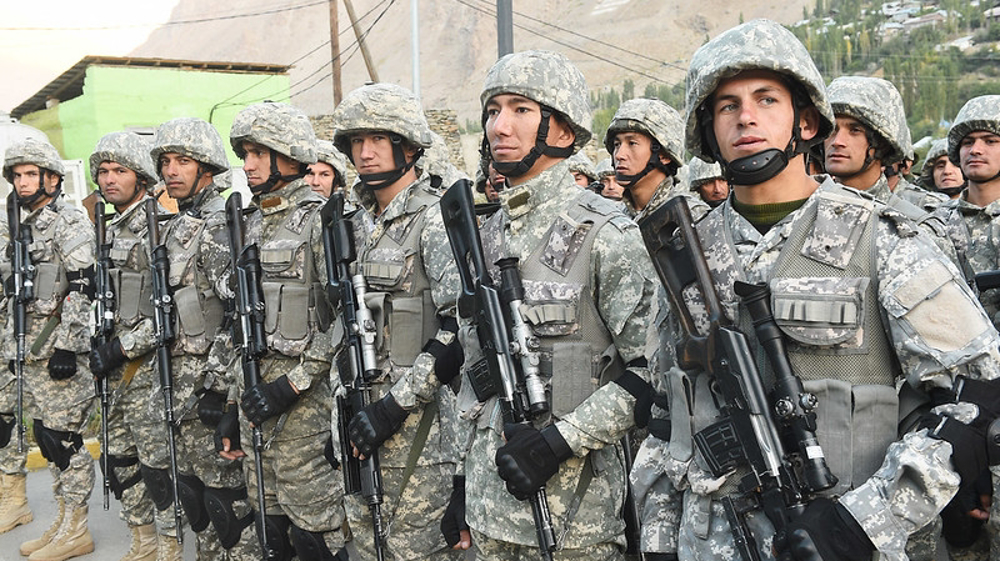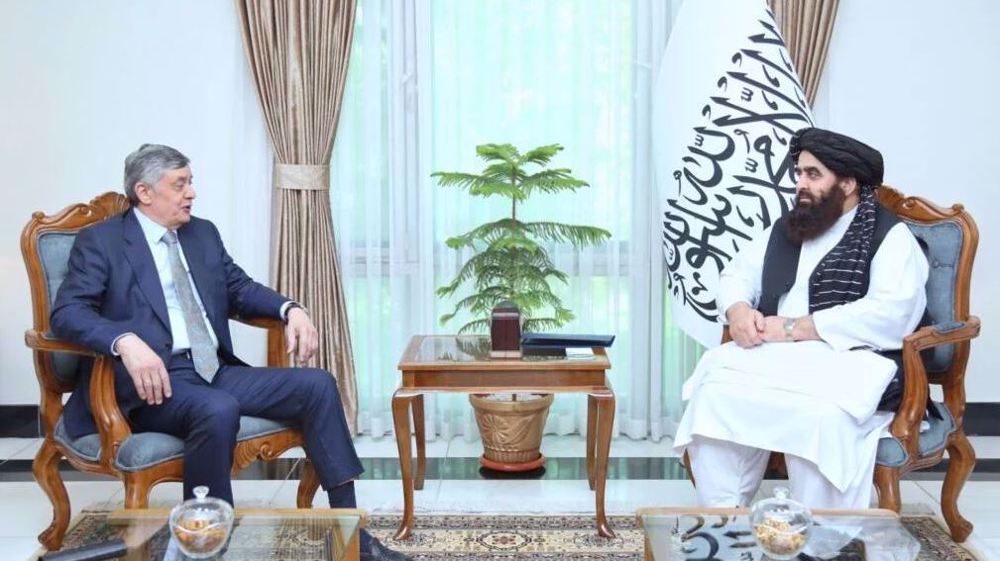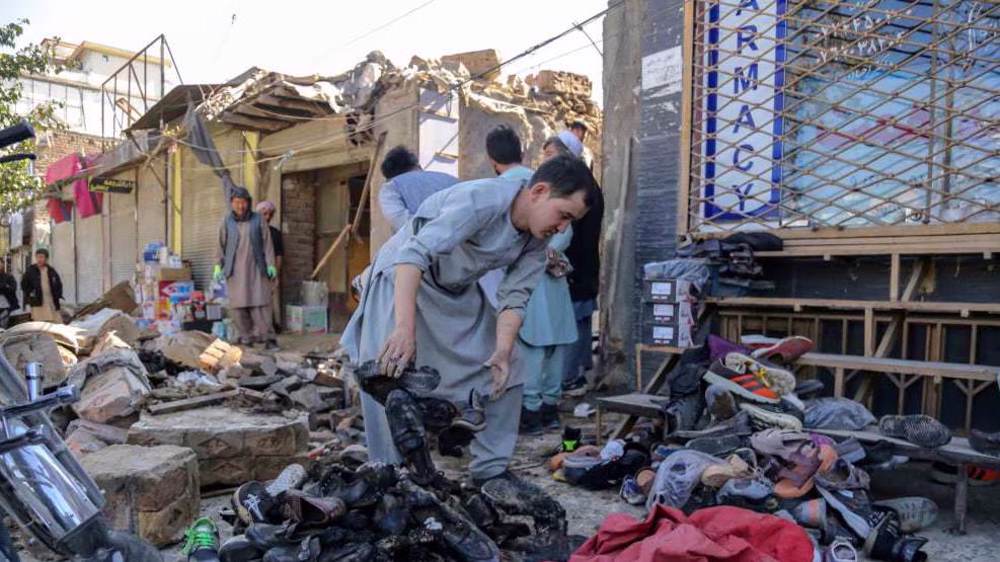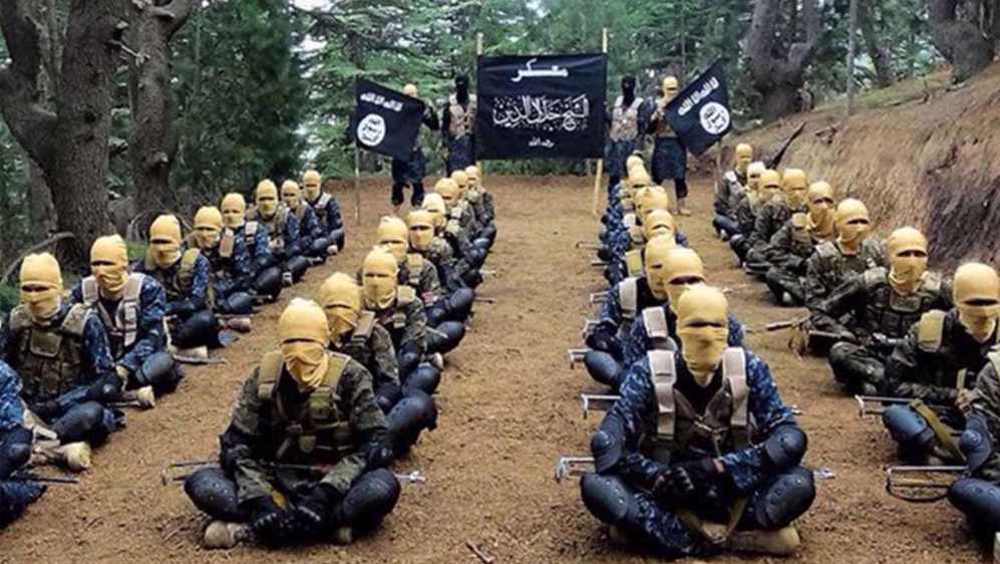Russia urges Afghanistan, ally Tajikistan to calm, end war of words, saber-rattling
Russia has urged Afghanistan and ally Tajikistan to calm, as the two neighbors are embroiled in an open battle of words and saber-rattling, weeks after the Taliban militant group overthrew the Afghan government after seizing the capital Kabul.
The Russian Foreign Ministry spokesman Alexei Zaitsev further said hat it had heard reports that Afghanistan and Tajikistan were sending troops to their common border, TASS news agency reported.
“We observe with concern the growing tensions in Tajik-Afghan relations amid mutually strong statements by the leadership of the two countries,” he added.
Zaitsev noted that the Taliban had said that they had already deployed tens of thousands of their special forces in Afghanistan’s northeastern province of Takhar, which is adjacent to Tajikistan.
The government of Afghanistan collapsed on August 15 and President Ashraf Ghani fled the country in the face of the lightning advances of the Taliban, which followed US President Joe Biden’s decision to withdraw the American troops in a chaotic pullout.
On September 7, the Taliban announced the formation of a caretaker government in Afghanistan, where hunger and poverty have significantly increased during the past month.
While the Taliban are trying to burnish the legitimacy of their newly-formed government in the eyes of the global community, no country has yet recognized it.
In recent weeks, Dushanbe has repeatedly called on the Taliban to that a future Afghan government must include more ethnic Tajiks in its ranks.
More than a quarter of Afghanistan's population is made up of ethnic Tajiks, but Taliban members predominantly belong to the biggest ethnic group, Pashtuns.
The Taliban, in response, has strongly lambasted the call by the Tajik government as meddling in domestic Afghan affairs.
“We will not allow any neighboring nation to interfere in the internal matters of Afghanistan,” said Taliban’s acting deputy prime minister Abdul Salaam Hanafi early this week.
Later in the week, another deputy head of the Taliban government, Abdul Ghani Baradar, echoed Hanafi’s remarks.
The Taliban are also irked by a steady trickle of reports about Tajikistan’s alleged offering a haven and assistance to exiled Afghan groups opposed to the Taliban’s government in Kabul.
In response to the Taliban’s verbal barbs, Tajik President Emomali Rahmon doubled down on his criticism of the Taliban in an address to the 76th session of the UN General Assembly on September 23.
He warned that “various terrorist groups are actively using the unstable military-political situation in Afghanistan in order to strengthen their positions.”
The Tajik leader also stressed that Dushanbe is “seriously concerned and regret that Afghanistan is once again on its way to becoming a platform for international terrorism.”
Rahmon has also denounced what he described as violations of human rights in the Taliban's siege of Afghanistan’s Panjshir province, where opposition forces had rallies.
Rahmon, whose country hosts a Russian military base, oversaw on Thursday a ceremonial parade of army and Interior Ministry troops in the capital of the Gorno-Badakhshan Autonomous Region, or GBAO, which shares a long border with Afghanistan.
Three days earlier, a similar parade was held in the Darvoz region, which lies just west of GBAO.
Tajikistan and its security partners have been holding demonstrative military drills since even before the Taliban’s takeover of Kabul.
The Taliban first ruled Afghanistan from 1996 to 2001 until the US-led NATO invaded the country and toppled its government in 2001 on the pretext of fighting terrorism and eliminating the al-Qaeda Takfiri terrorist group following the September 11 attacks in the US.
48-year-old Palestinian man serving 48 life terms completes 22 years in Israeli jails
From MKO to Tondar, how Germany became safe haven for anti-Iran terror groups
Hamas open to any proposal aiming to end Gaza war: Hamdan
Role of private sector in Iran’s thriving space industry
Four Palestinians killed in Israeli strikes on West Bank
Iran warns of ‘calculated, precise’ response to Israeli aggression
After year-long genocide, Israeli military hires private firms to flatten buildings in Gaza
Malaysia working on resolution to expel Israel from United Nations










 This makes it easy to access the Press TV website
This makes it easy to access the Press TV website